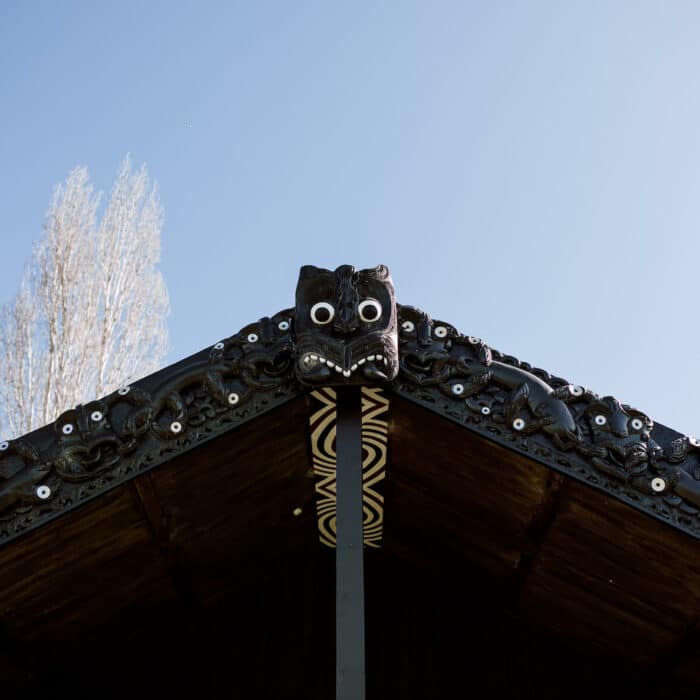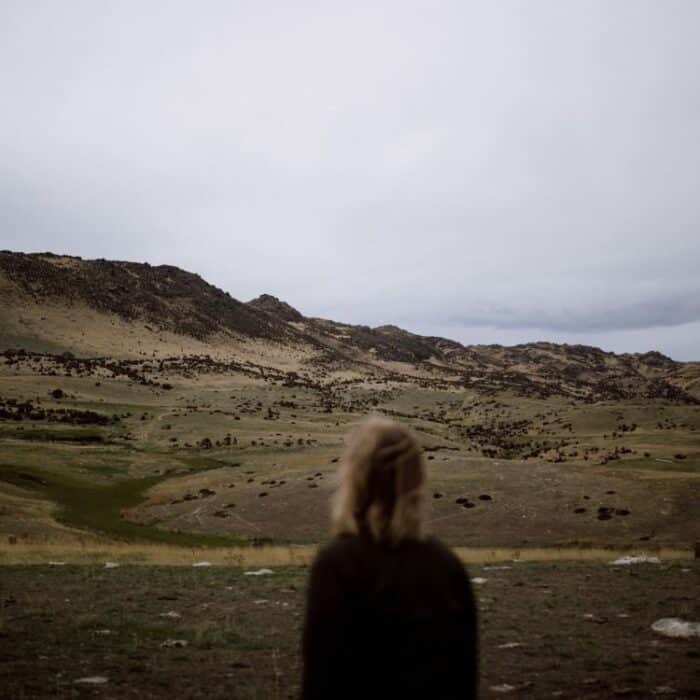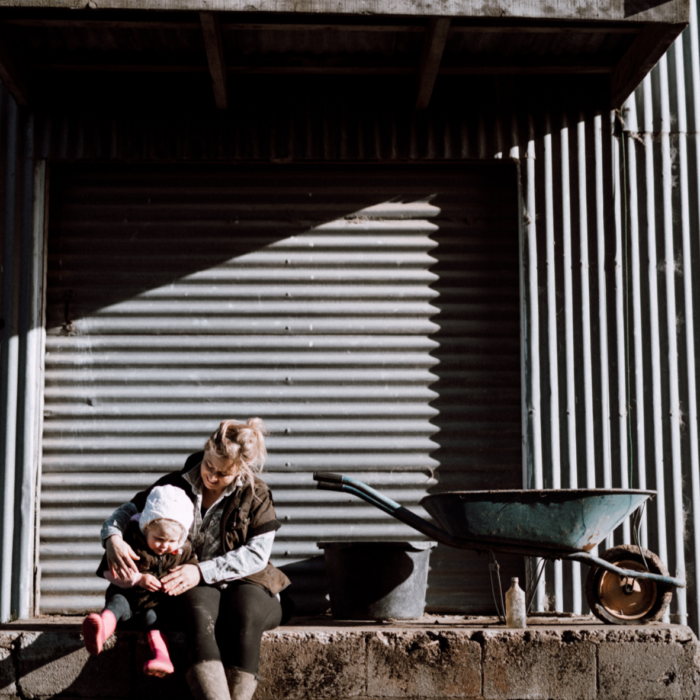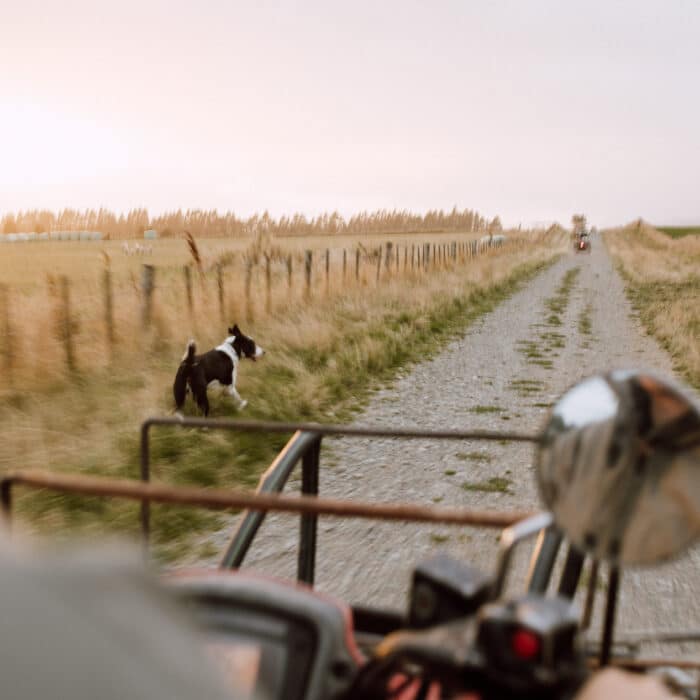
Women’s health, particularly reproductive health, is so often boxed in as one big topic. But losing a baby halfway through my pregnancy was different to my experience of having a miscarriage before twelve weeks, which happened twice. The nuanced aspect of women’s reproductive health isn’t given enough of a voice. Miscarriage and pregnancy loss, fertility struggles and infant loss – women often face it alone, because the resources are so stretched. That isolation is amplified when, as rural women, we are geographically isolated as well.
After the loss of our son at nearly twenty weeks, I leaned into the grief, chaos, confusion and hormonal stuff. I mentally gave myself a year. I still had a son, a husband, a business and a routine. Life goes on, and yet you’re going through this kind of intensity. I just want women to know that leaning into what they’re going through is okay. Comparing and minimising your loss is dangerous, because it’s not letting you process that grief and work through it.
I went and spoke to a psychologist. I read Joan Didion’s The Year of Magical Thinking, about the stages of grief and how it dominates your life for a period of time. As long as you give yourself that time and space, surround yourself with your circle of trust, feel okay about talking through stuff and asking for professional help, then eventually the rest of life starts taking up more space again. You never quite put that grief to bed; it just takes up less space.
We’re often at the cornerstone of communities or families – we’re the glue. I want women to know they can be human and relinquish that need to have their shit together. Feel okay about putting yourself first while you’re in the depths of that intense loss.
I’ve set up the Aotearoa Rural Maternity Support Helpline, which is a first port of call for women who just want to ring and talk. I’m happy to talk about anything to do with the loss of our little boy. It’s amazing what trips me up into tears. It’s usually around reliving the actual birth, and that’s fine. It’s not like I go to those depths often. Perhaps my brain needs to keep processing the grief, because you never get over it. You just move forward.
The first miscarriage – I couldn’t believe it was happening. I’d had no issues with my first pregnancy. I was visiting my family up in the Bay of Plenty. Richard was at home on the farm, and so I was by myself with our son Henry in the backpack. He was a good weight at fifteen months old, and I was newly pregnant. The next week, I started to bleed and miscarry. You want to find a tangible reason as to why a miscarriage occurs: Why was I carrying that weight on my back when I was so early in my pregnancy? Was I exercising too hard? Should I have not had that second coffee?
No – just think about how we’ve been reproducing for millennia. I’m not a medical professional, so I’m not saying, “You don’t need to go and get yourself looked at; there’s nothing wrong with you.” I’m saying, “Please don’t go through that blame cycle with yourself.” Just lean into how you’re feeling, and either write it down or tell someone. If you’re going round in circles and you’re not coming to any kind of resolution, talk to a GP or someone who has been through it and is open about sharing their experience. Do not try and solve it on your own.
Living rurally, we think that we’re more connected these days because of the digital world, but it can exacerbate the problem because we don’t have that human connection. Looking things up online can be a first step, if you’re trying to work through things. I would look at [online] medical journals, and then I’d go and talk to my GP.
Go with your instincts. Once the shock of my first miscarriage had subsided, I was at peace with the fact that it wasn’t a viable pregnancy. But after losing our little boy, I knew there was something more going on, and went through the process of having tests. With our third loss at seven or eight weeks, I found a new kind of strength. I was like, I’ve got this. It’s awful, and I’m really sad and scared, but I've got this. I don’t feel scared of much in my life now. I have my ‘tiger mum’ persona for when I’m mothering. The only fear I really have is around my children being hurt. It feels like I’ve got a new level of strength, because of the intense loss that we’ve been through, and I’m really proud of it.

This story is part of THREAD, a year-long project by Shepherdess made possible thanks to the Public Interest Journalism Fund through NZ On Air.
Related Stories
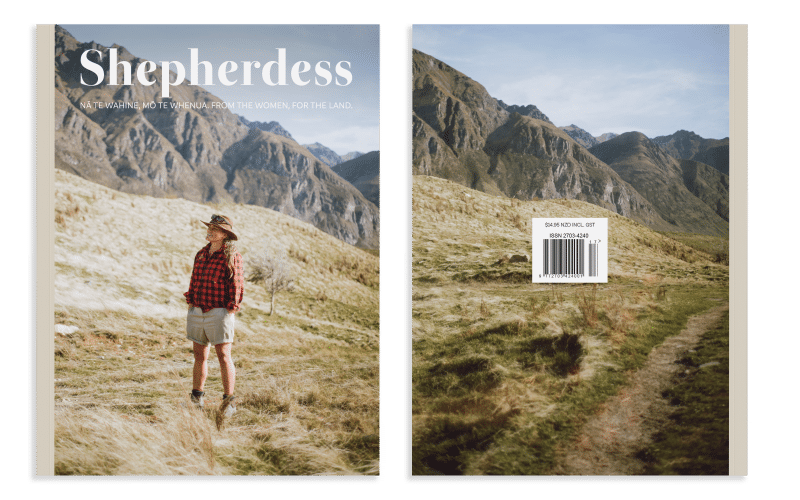
Out Now
Seventeenth Edition
Our beautiful Ngahuru Autumn 2024 Edition is out now!
